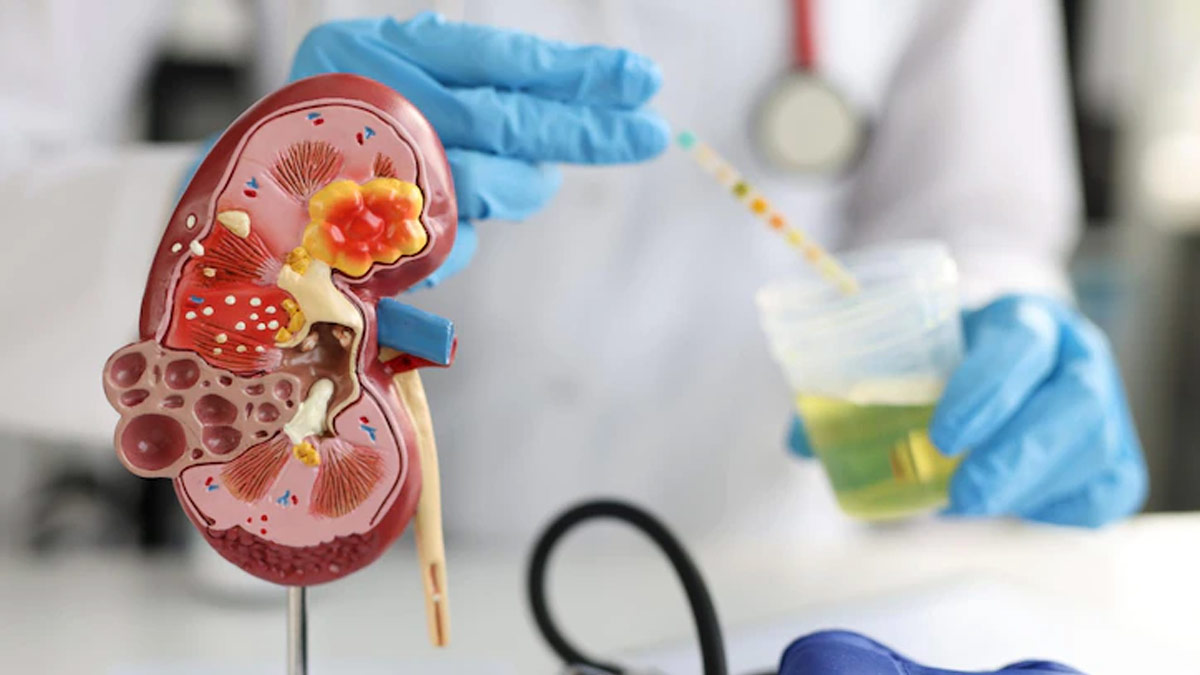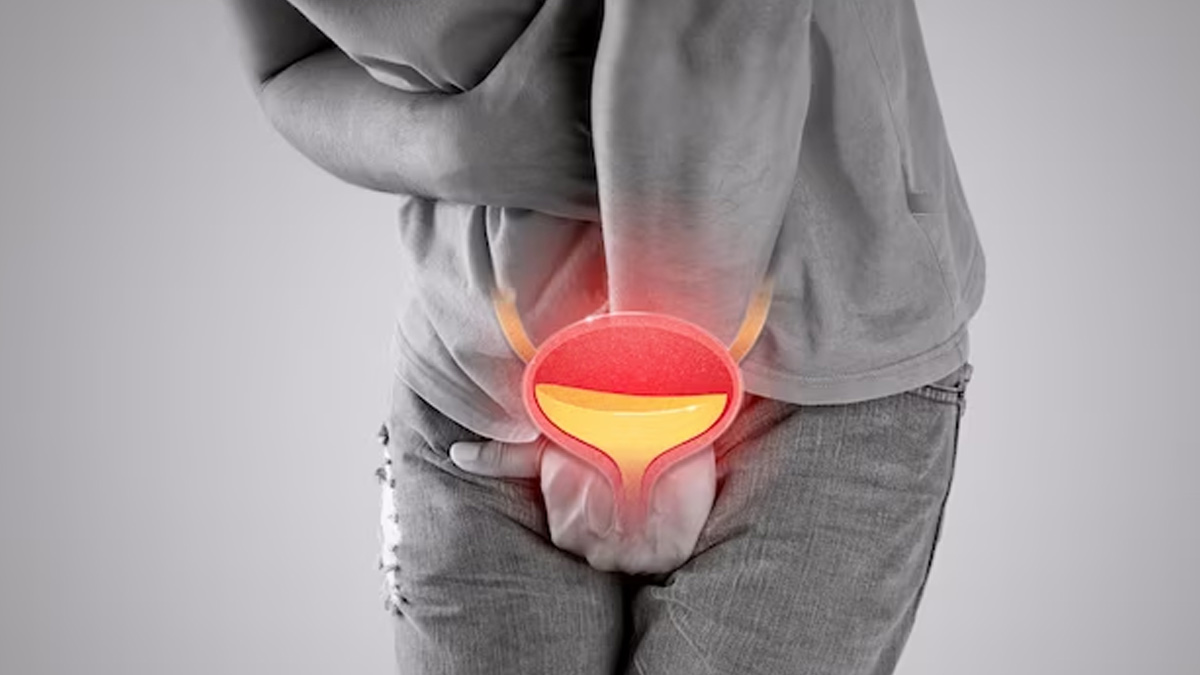
Kidney stones, though small in size, can cause big discomfort and pain. Recognising the initial symptoms of kidney stones is crucial for seeking timely medical attention and managing the condition effectively. From sudden bouts of agony to subtle discomfort, here are the signs that might indicate the presence of kidney stones.
“Kidney stones are little ball-like formations of excess waste particles that collect in the kidney over time,” said Dr Rakesh Tyagi, Nephrologist at Sahara Hospital in Lucknow.
Intense Flank Pain: The Telltale Sign
One of the most unmistakable symptoms of kidney stones is intense pain in the flank area, which is the region between your ribs and hips on the backside. The pain can be sudden and severe, often described as excruciating. It might come in waves and radiate to the lower abdomen and groyne.

Also read: Kidney Infections: How To Know If You Have It
Sharp Pain
Kidney stone pain is often described as colicky, meaning it can come and go in waves. You might experience periods of intense pain followed by temporary relief. The pain might be sharp and stabbing, causing you to writhe in discomfort.
Painful Urination
As a kidney stone moves down the urinary tract, it can cause irritation and inflammation.
This can result in a burning sensation and pain when you urinate. It's important to note that this symptom can also indicate a urinary tract infection, so it's essential to seek medical advice for proper diagnosis.
Blood in Urine
Kidney stones can cause microscopic or visible blood in your urine. If you notice pink, red, or brown discoloration in your urine, it's a sign to pay attention to. However, blood in the urine can also be caused by other conditions, so consult a healthcare professional for an accurate diagnosis.
Frequent Urge to Urinate
Feeling the need to urinate more frequently than usual, even if only small amounts of urine are produced, could be a symptom of a kidney stone. The stone's presence can irritate the bladder and lead to increased urgency.
Cloudy or Foul-Smelling Urine
Kidney stones can cause changes in urine appearance and odour. If you notice that your urine is cloudy, has a strong odour, or looks different from usual, it's worth considering it as a potential symptom.
Nausea and Vomiting
The severe pain associated with kidney stones can trigger nausea and vomiting. These symptoms can also result from the body's response to the pain. If you experience persistent nausea or vomiting along with other symptoms, seek medical help.
Restlessness and Difficulty Finding Comfort
The pain caused by kidney stones often makes it challenging to find a comfortable position. You might feel restless and unable to sit or lie down without discomfort.
Groyne or Testicular Pain
In men, kidney stone pain can radiate to the groyne and testicles, leading to discomfort in those areas.

Also read: Ayurveda For All: How It Can Help Treat Kidney Failure
A Family or Personal History of Kidney Stones
If you have a family history of kidney stones or have experienced them before, you might be at a higher risk of developing them again. Knowing your risk factors can help you be more vigilant about potential symptoms.
Recognising the initial symptoms of kidney stones is crucial for seeking prompt medical attention. If you experience any of these signs, especially intense flank pain, blood in urine, or painful urination, it's important to consult a healthcare professional for proper diagnosis and treatment. With timely intervention, you can manage kidney stones effectively and prevent complications.







